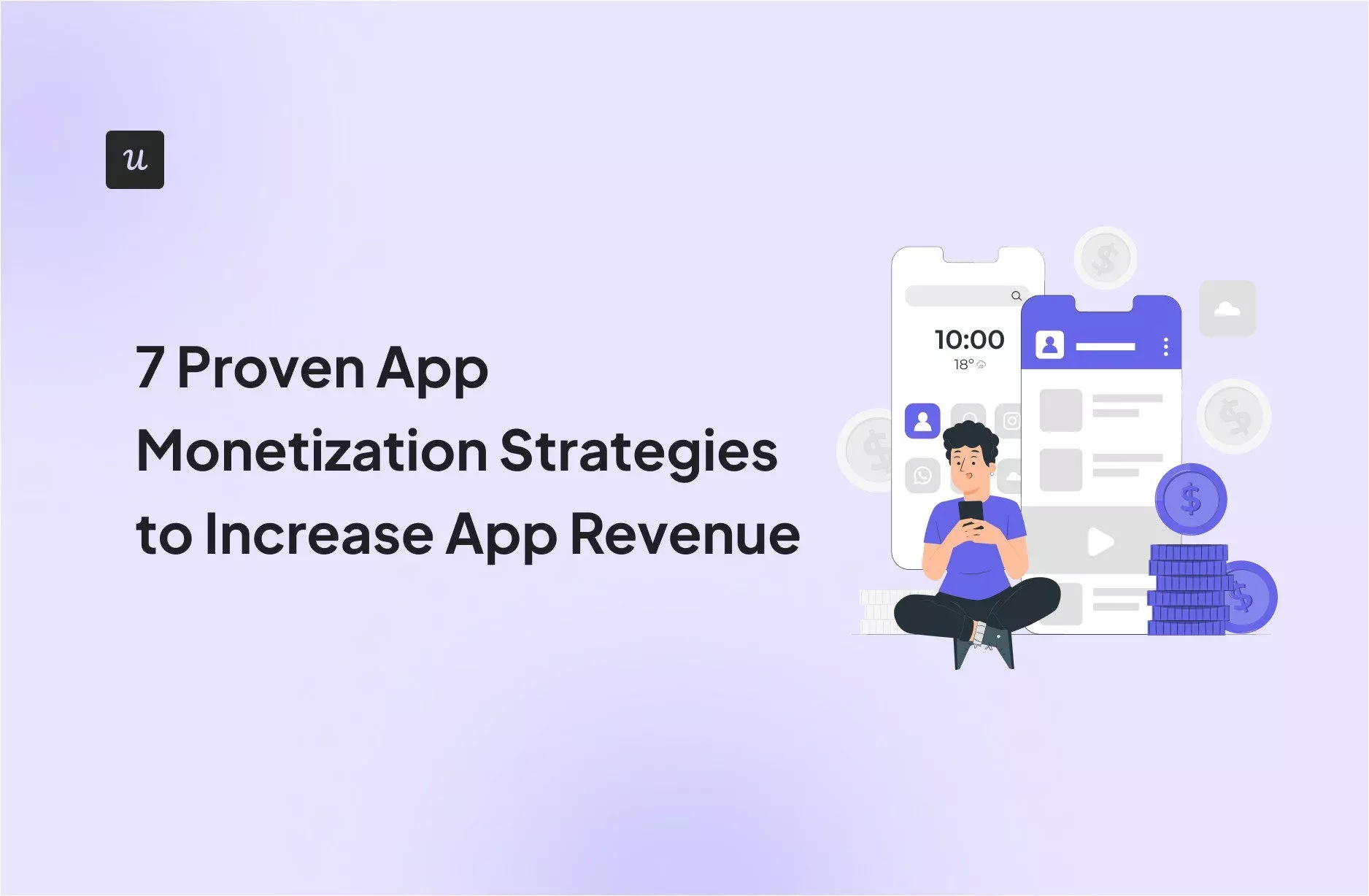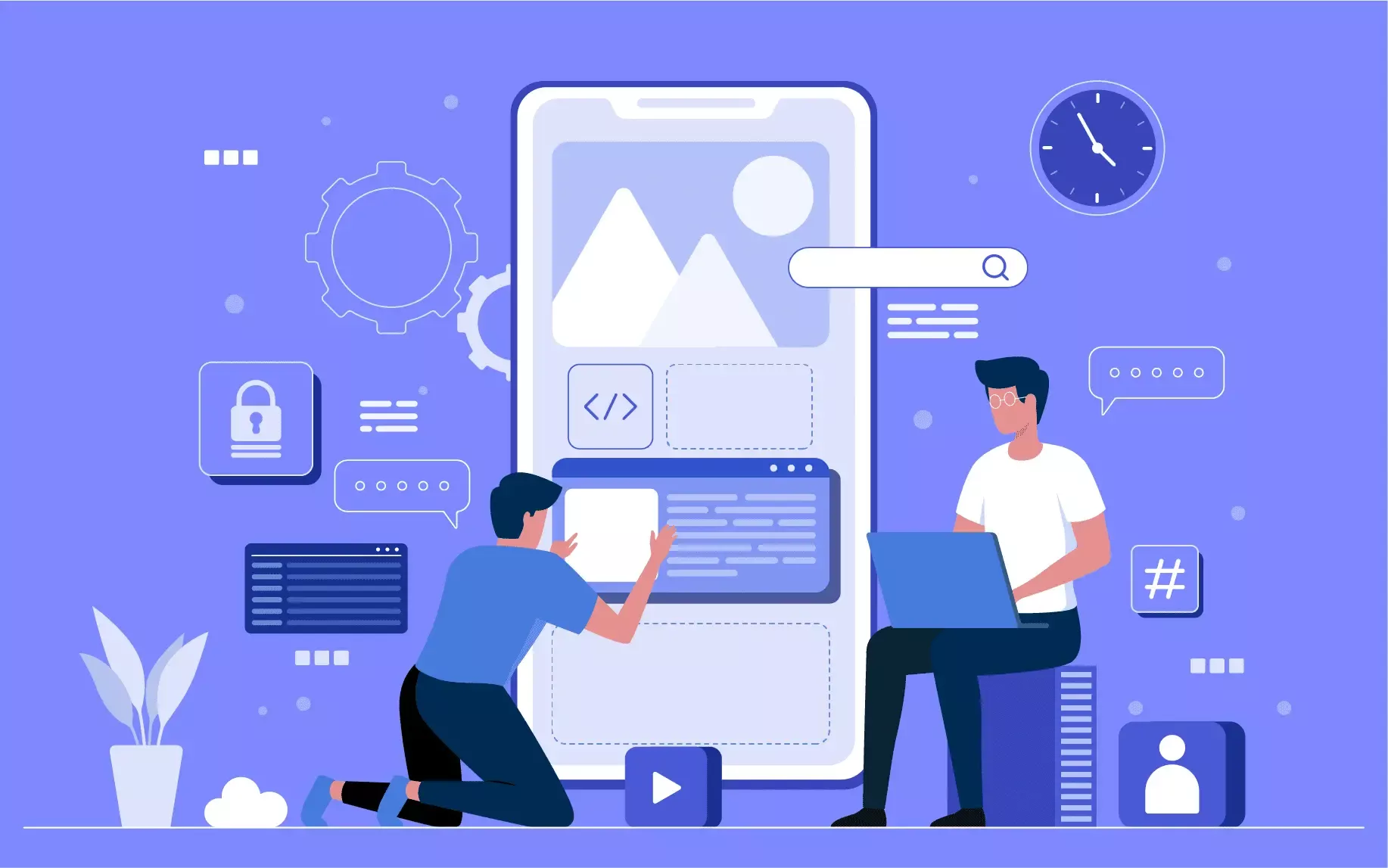How to Scale a Digital Business - Website, App, or Ecommerce
-
 By Editorial Staff
By Editorial Staff
-
18 January 23
Summary
The digital age is here, and it's changing the way we do business in every industry. Digital marketing is on the rise, and so are the number of companies that want to be successful in this new age. But how do you scale a digital brand? In this article, we'll discuss some critical strategies for scaling your digital business as well as tips for optimizing your online presence so that it meets your target audience's requirements.
How to Scale a Digital Business?
There is no one-size-fits-all when it comes to scaling a digital business. Every business is unique and has different goals, strategies, and resources. But there are certain things that all companies should do to help them reach their full potential.
1. Optimize Your Digital Footprint
Websites are the most visible part of your digital business. They're where you present yourself to customers and potential clients, so they must look good, feel easy to navigate, and be connected with what you do (and who else you do it with).
To optimize your website:
- Make sure that search engines like Google can index your pages – this means making specific titles clear and concise; using keywords in the key phrases; ensuring that all links lead back to your site (not just a 404 error page); setting outbound links clearly so people can easily find them; adding alt text for images if necessary; ensuring pages load quickly enough for users who come from mobile devices - these things will improve how likely people are going to return later on down the line!
If you need help with optimizing your website, ask someone who knows more about it than you do. Or, if you have a small business, consider hiring an SEO company in your area (or even one that works internationally).
2. Do your research
Before you get started, it's essential to do your research. You should know who you are and what your business goals are, including knowing what KPIs (key performance indicators) will be effective in achieving them. It would be best if you also had a clear understanding of who your target audience is and where they live so that you can create content that speaks directly to them.
Once these things are sorted out, it's time for some hard work: planning so that not just any old something will suffice!
3. Know your audience
Knowing your audience is the key to scaling your digital business. You need to understand what they want and need from you, not just in content but also in how they will use it. What pains do they experience when using other websites? What pain points make them skip over certain types of content? How can you help them solve these problems with your website or app?
You also need to know who your target audience is: who's visiting the site (and why), what demographic information we have about each visitor—age, gender, income level—and which pages get the most traffic per month/year, etc. so that you can optimize those pages appropriately as well as create new ones if necessary with specific messaging aimed at different groups within those demographics."
4. Make SEO a team effort
![12[1].webp SEO](https://publishergrowth.com/storage/uploads/2023/07/18/1689674578-64b6635287e58.jpeg)
SEO (search engine optimization) is a team effort, not one person's work. There are many ways to optimize your website for search results and maximize traffic, but it's best to have a specialist at the helm who can guide you through the process. An excellent example is Content Marketing Institute's Content Marketing Academy: https://contentmarketingacademy.com/.
If you want to scale up your digital business and compete with more prominent brands on a global scale, then make sure that your SEO team includes the following:
- A content marketer who understands how content marketing works and can write excellent copy (and understand how important they are). This person should also be able to create high-quality blog posts or eBooks based on industry trends or customer needs;
- An expert in link-building strategies like guest blogging;
- An expert in social media management like Facebook Ads Manager or Twitter Ads Manager;
5. Create a strong web presence
There are many ways to promote your website, but here are the most popular:
- Create a strong web presence. The first step is to have a robust website that is easy for visitors to find on Google and other search engines. You should include social media buttons on your site so that people can share content with their friends via Facebook, Twitter, or Pinterest – this will help increase traffic from these channels.
- Build an email list of loyal customers by sending them offers from time to time (e.g., discounts) or special promotions like free shipping offers when they buy something from you online.* Use search engine optimization (SEO) techniques such as keyword research and meta tags which will help improve rankings in search engines like Google.* Use Google Analytics which tracks all activity across all platforms, including mobile phones, so you can see how many visitors come through each page of yours every day without having too much data overload when trying out new tactics here at scale level."
6. Make your website mobile friendly
![8[2].webp Mobile Friendly Website](https://publishergrowth.com/storage/uploads/2023/07/18/1689674597-64b66365bc2ed.jpeg)
To attract new customers, the most important thing is to make your website mobile friendly.
A mobile-friendly website means it's easy for people with smartphones and tablets (such as iPads) to access information on your site. The right balance between text and images and SEO practices like internal linking and page titles can help lower bounce rates among this group of users. This makes it easier for them to find exactly what they're looking for when they come across one of your pages while browsing through their devices.
In addition, having a responsive design will allow users from all platforms—desktop computers, laptops/netbooks, smartphones/tablets—to view content in the same way regardless of screen size or resolution settings (which often vary between devices). This makes it easier for visitors who visit from different locations worldwide because each user gets similar results regardless of where they're geographically speaking."
7. Build your social following
![13[1].webp Build Social Following](https://publishergrowth.com/storage/uploads/2023/07/18/1689674615-64b663774a86f.jpeg)
Social media is a critical part of any digital marketing strategy. It helps you build awareness and credibility and drive traffic to your website or landing pages.
There are several ways you can use social media in your business:
- Build an audience for yourself on platforms like Facebook, Twitter, Instagram, and LinkedIn by consistently posting about the topics that interest you most. When people see what interests them most on social media, they're more likely to follow along with whatever else happens in life that involves those topics—and this can lead them back over time! For example: if someone likes my Facebook page because I post about books (which happens often), then maybe someday that person will want some extra help when it comes time for college applications; so perhaps she'll go through my profile & see all the stuff I've posted there--and maybe even comment on one post sometime down the road when they need advice themselves."
8. Test, Measure, and Adjust:
Once you clearly understand your website's performance, it's time to test it. This can be done in two ways: by using tools that measure how users find and interact with your website or by measuring what happens when someone clicks on one of your pages. For example, if you want to know how many people are actually clicking through from page 2 of an article to page 3 (and not just browsing the first few pages), then measuring this is a great way forward. If, however, all you want is enough data so that you can see whether there are any issues with page load speed or server capacity, etc., then measuring will probably not be enough information for this purpose – instead, try tracking how long it takes users to take their mouse cursor over various parts of a page before they click somewhere else (this will give some indication of where users spend most their time).
In this digital age, having a solid online presence is critical to the success of any digital business:
- How can you optimize your digital footprint?
- Who is your audience, and what do they want from you?
- Do you have an SEO expert on staff, or will this be a team effort?
To answer these questions, everyone in your organization must know how to make each other more effective at their jobs.
If you need help creating a digital footprint that works for your business, it's time to get some help. A marketing expert can help you identify your target audience and determine what they want from you. They'll also be able to help you optimize your online presence so that people can find you when they need what you offer.
In conclusion, the most important thing to remember is that there are no shortcuts to long-term success. You have to be willing to invest time and money into your business to grow it into something big. Remember, if you're not taking care of yourself first, then it won't matter how many followers you have on social media or how many emails are coming through your inbox every day—it will all fall apart eventually!
| Recommended Software | Category | Why Choose? | Signup URL |
|---|---|---|---|
| Setupad | Website Monetization | High CPMs, On time payments | Signup here |
| Adsterra | Website Monetization | AdSense alternative, niche CPMs | Signup here |
| Beehiiv | Email Monetization | Additional revenue, High CPMs | Signup here |
| Semrush | SEO | High impact on SEO and traffic | Signup here |
| Frase.io | AI SEO | Affordable, Boosts SEO traffic | Signup here |
| WP Rocket | Speed Optimization | Affordable, Boosts Pagespeed | Signup here |
Blog FAQs

Editorial Staff at Publisher Growth is a team of blogging and AdTech experts adept at creating how-to, tutorials, listings, and reviews that can publishers run their online businesses in a better way.
View All PostsOur Editors’ Pick:
Browse these amazing publisher monetization tools handpicked by our team of editors

















.webp)





 (1).webp)


